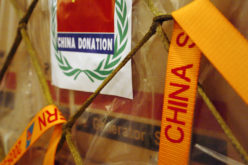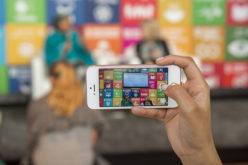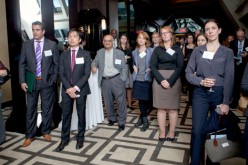A universal challenge: Education is the foundation for peaceful societies
Written by Amina J. Mohammed, the United Nations Secretary-General Ban Ki-moon‘s Special Adviser on Post-2015 Development Planning.
[The Annual Status of Education Report (ASER) is the largest citizen-led household based survey of the quality of education in Pakistan and other countries. It aims at improving the state of learning outcomes of children and works with citizens to foster nationwide conversation and actions on learning. This year’s survey has used some innovations in data collection and incorporated some data on disabilities/health.
With 25 million of children out-of-school (55% of them being girls), the second highest dropout rates and huge regional disparities, Pakistan suffers from a profound education crisis.]
Education has been recognized as a fundamental human right for more than half a century now. Yet, millions of children still can’t go to school, and some risk their life when they do. Beyond the outrage and just condemnation, stories such as those of Malala are the clear manifestations of a profound and complex crisis. Education can help address it, but only if we consider the many interrelations between that exist between education and development.
If Pakistan is to provide all children between five and sixteen free and compulsory education, as embedded in its constitution, it must recognize the full potential of education as a catalyst for development – and act as such. Education is not only about learning; it is a multi-dimensional process that ultimately affects our people, our economy, and our planet. Indeed, education empowers people and transforms lives. It fosters economic growth. And it is the foundation for peaceful societies. To produce tolerant citizens capable of competing in the labour market, the public education system must provide quality teachers, schools and institutions. Education is not only an end in itself; it is a means to achieving a sustainable development agenda.
After eighteen months of intense inter-governmental negotiations among Member States, the outcome document of the Open Working Group has recognized the many different ways in which education can advance the future sustainable development goals. It acknowledges quality education not only as a top priority, but also as a cross-cutting issue by reflecting it under three other critical standalone goals related to health, economic growth and climate change. In a major departure from the Millennium Development Goals, the proposal of the Open Working Group also insists on the imperative to leave no one behind – no matter their gender, age, disability, ethnicity, wealth or geographic location.
This has a particular importance in countries like Pakistan, whose education system suffers from tremendous disparities between regions, gender, public and private schools, children with and without disabilities.
In that regard, the special focus on disability of this year ASER Pakistan survey is also particularly welcome. Persons with disability, who account for 1 billion people throughout the world, are often considered as the world’s largest minority that suffers from far too many violations of their rights. Denying their access to basic public services such as education is not only a violation of fundamental human rights, it is a profound mistake that affects all. Indeed, persons with disabilities are both beneficiaries and agents of development. No country can reach its full potential if whole segments of its society are excluded from participating in, contributing to, and benefiting from development.
To address the universal challenge of leaving no one behind, data disaggregation is absolutely key. By making visible the invisibles, it helps reaching the most vulnerable, track progress and make sure that decisions are evidence-based. As further demonstrated in the report of the Secretary-General’s Independent Expert Advisory Group on a Data Revolution for Sustainable Development (“A World That Counts: Mobilising The Data Revolution for Sustainable Development”), .traditional and non-traditional data as those collected in this survey contribute to accountability and ensure citizen’s involvement in policy making.
All of these elements – education, sustainable development, data disaggregation, accountability, inclusiveness – will be essential to the success of our future development agenda. The soon to be published synthesis report of the UN Secretary-General (“The Road to Dignity by 2030: Ending Poverty, Transforming All Lives and Protecting the Planet”) carries all of them while at the same time conveying the ambition expressed by member states during the Open Working Group. As the world stands at an historical juncture, it calls for a truly transformational and universal approach that integrates the three dimensions of sustainability (economic, social and environmental) in all activities, addresses inequalities in all areas, respect and advance human rights, and that is based on credible data and robust means of implementation. It also reiterates that all children and adolescents have a right to quality education and must have a safe environment in which to learn.
2015 will be a turning point for our humanity as the directions we will take then will determine whether or not we will succeed on our promises to make the world a better world – for our children and youth. We have a shared responsibility to engage on this challenging path and hold each other accountability, for our successes and failures. It will therefore be critical that civil society in particular, through initiatives such as this one, continues to push for an ambitious agenda that lives no one behind.
A Nigerian proverb says that “it takes a village to raise a child”. So let’s all work together – governments, civil society, United Nations, private sector, academia and citizens of the world – to ensure a life of dignity for all our children.
This oped was originally published on Dawn.
1,330 total views, 2 views today






